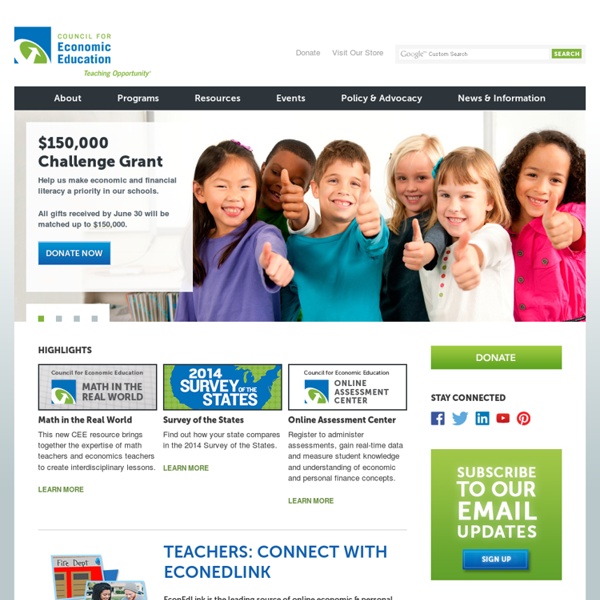



Business Economics | Introduction to Basic Economics What is Financial Literacy - Your Life Your Money The President's Advisory Council on Financial Literacy defines personal financial literacy as "the ability to use knowledge and skills to manage financial resources effectively for a lifetime of financial well-being." (200 8 Annual Report to the President ) Personal financial literacy is more than just being able to balance a checkbook, compare prices or get a job. It also includes skills like long-term vision and planning for the future, and the discipline to use those skills every day. In the US, we make great efforts to teach children to read and write, but we don't give their financial literacy the same attention. As a result, few young people know how to to manage their personal financial lives. Your Life, Your Money tries to change that by telling dynamic, culturally aware (and true) stories of young adults in financial trouble. These compelling and relevant stories help viewers understand the issues.
FinEdChat RFE Financial Literacy Definition | What is Financial Literacy @ NFEC The National Financial Educators Council defines financial literacy as: “possessing the skills and knowledge on financial matters to confidently take effective action that best fulfills an individual’s personal, family and global community goals.” Several other national organizations have created their own definition. Listed below are several financial literacy definitions that do vary but also do share commonalities. The Government Accountability Office (GAO) defines financial literacy as: “the ability to make informed judgments and to take effective actions regarding the current and future use and management of money. It includes the ability to understand financial choices, plan for the future, spend wisely, and manage the challenges associated with life events such as a job loss, saving for retirement, or paying for a child’s education.” Although each financial literacy definition is varied, most have similar components. Share This Article
My Education Blog Institute For Financial Literacy ®National Standards Second Edition Released: October 2007 The National Standards for Adult Financial Literacy Education identify the personal finance knowledge and skills an adult should possess. The Institute for Financial Literacy® contends that all adults who receive financial literacy education should have, at a minimum, the knowledge and ability to competently perform the basic tasks of managing their personal finances. Financial literacy is a lifelong process requiring both academic and practical components. The Institute for Financial Literacy strongly recommends that adult financial literacy education programs be designed to appeal to multiple adult learning styles and modalities, and utilize any educational resources found to be effective. Standard I: Money Management Standard II: Credit Standard III: Debt Management Standard IV: Risk Management Standard V: Investing & Retirement Planning Best Practices Guidelines for Adult Financial Literacy Education Materials Standard I: Money Management Top
Καλώς ήρθατε στην Ε.Ο.Ε.Δ.Ε. Adult Financial Literacy Programs For Organizations & Individuals By NFEC The rules of basic survival demand that every adult should have some form of income in order to meet his or her financial obligation on a daily basis. While this may sound rather normal to the successful adult who is on the right truck, it could be a nightmare for those who are struggling to find their economic potential. Financial literacy for adults can be a major boost in helping such people to discover and exploit their potential. Making wise decisions about economic activities can be very complex for people who do not have any knowledge in such matters as concerns money and investment. The wise thing to do however in such circumstances is to consult good financial advisors who can be able to evaluate and analyze your situation and come up with tangible investment schemes that can suite your situation. The greater risk is that the same misunderstanding could also lead to wrong investment decisions as well as trouble with the authorities in some cases.
ΕΝΩΣΗ ΟΙΚΟΝΟΜΟΛΟΓΩΝ ΕΚΠΑΙΔΕΥΤΙΚΩΝ Δ.Ε. ΜΑΚΕΔΟΝΙΑΣ - ΘΡΑΚΗΣ Financial Literacy Online Education, Programs & Courses | MoneyU